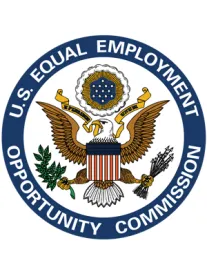Each year between October and May, millions of people contract the flu. Recent estimates suggest that up to 111 million workdays are lost during the flu season each year — at an estimated $7 billion per year in sick days and lost productivity.[1] In light of the significant impact the flu can have on human capital and workplace productivity, many employers – especially those with employees who frequently interact with members of the public through the course and scope of their employment, such as health care providers, retailers, and educators – are beginning to implement policies mandating flu shots for all employees. The administration of an annual flu vaccine can substantially reduce the risk of contracting the flu and spreading it to others. During the 2015-2016 flu season, the Center for Disease Control estimates that flu vaccinations prevented approximately 5.1 million illnesses and 2.5 million flu-associated medical visits. However, as discussed in our HEAL Take 5 December 2016 newsletter, a recent influx of Equal Employment Opportunity Commission (EEOC) lawsuits alleging religious discrimination and failure to accommodate under Title VII highlight the challenges employers face when implementing mandatory flu vaccination policies.
On September 22, 2016, the EEOC filed a lawsuit against Saint Vincent Health Center in Erie, Pennsylvania alleging religious discrimination on behalf of six Saint Vincent former employees, asserting that the hospital refused to grant them religious-based exemptions from a mandatory flu vaccine policy and then discharged the employees when they refused the vaccination. EEOC v. St. Vincent Health Ctr., No. 16-224 (W.D. Pa. Sept. 22, 2016). In December 2016, Saint Vincent settled the suit for $300,000 and offered reinstatement to the terminated employees. Further, Saint Vincent agreed on a going forward basis to grant exemptions to its mandatory flu vaccine policy to all employees who request one due to sincerely held religious beliefs unless the hospital can demonstrate an undue hardship to its operations. The hospital agreed that it would not deny any accommodation requests solely because it disagrees with an employee’s stated beliefs, thinks the belief are unfounded, or that the beliefs are not based on an official religion or denomination. Additionally, Saint Vincent agreed to notify its employees of their right to request a religious exemption to any mandatory vaccination policy, implement appropriate procedures for considering such accommodation requests, and provide training regarding Title VII reasonable accommodation to certain personnel.
Saint Vincent is not the only employer to recently be targeted by the EEOC as a result of its mandatory flu vaccine policy. Two similar suits are pending in North Carolina and Massachusetts. See EEOC v. Mission Hosp., Inc., No. 1:16-CV-00118 (W.D.N.C. Apr. 28, 2016); EEOC v. Baystate Med. Ctr., Inc., No. 3:16-cv-30086 (D. Mass. June 6, 2016). In both of those suits, the EEOC has alleged similar violations of Title VII due to a failure to accommodate the religious practices of employees.
While it is uncertain how ardently the EEOC will pursue these cases under the new administration, individual employees remain able to pursue claims for religious discrimination on their own behalf. Moreover, in addition to Title VII compliance, employers risk running afoul of the Americans With Disabilities Act (ADA) and similar state laws if they do not consider accommodations for employees who choose not to be vaccinated as a result of existing medical conditions. The recent uptick in cases on this issue makes clear that employers should be cautious when developing mandatory flu vaccine policies and should consult legal counsel before implementing any such policy (or refusing to grant an exception to the policy) to insure its compliance with Title VII, the ADA, and comparable state or local law. Employers should also work with employees to think outside the box regarding possible accommodations when an employee expresses an objection to the policy due to a sincerely held religious belief or for medical reasons. Among the available accommodations a hospital may consider are the use of a surgical mask or transfer to a non-patient-facing position.
[1] Statistics referenced herein are taken from the CDC website.



 />i
/>i

